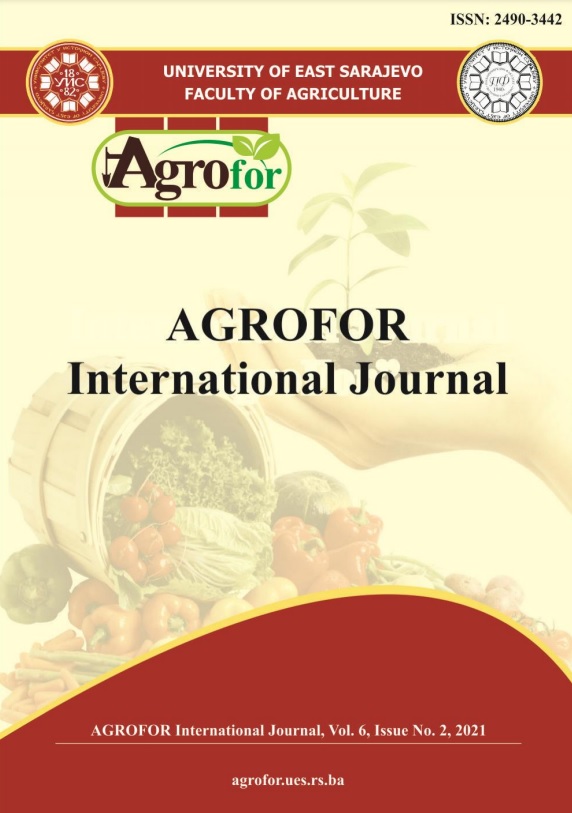PARENT MATERIAL AS A KEY DETERMINANT OF SOIL PROPERTIES IN SOUTHERN PART OF NATIONAL PARK KRKA, CROATIA
DOI:
https://doi.org/10.7251/AGRENG2102116BAbstract
Parent material is an important factor in soil formation, especially in soils formed in Mediterranean region dominated by calcareous sedimentary rocks. Their basic properties (mineralogical composition, coherence, and permeability for water)
influence the resistance to weathering and type of weathering products, its amount, particle size distribution, as well as the intensity of physicochemical transformations within the original rock residue. Thus, the aim of this study was to investigate the impact of parent material on soil properties in southern part of Krka National Park, Croatia. Weathering of carbonate parent material (limestones, dolomites, conglomerates, marls) along with other soil forming factors was the base for soil development in this area. Thus, Calcocambisols and Terra rossa, typical and ilimerized are the most widespread soil types, while Calcomelanosols, Colluvium and Rendzinas are as well represented, but in much lesser extent. Soil depth, presence of coarse fragments and carbonate content in these soils vary considerably depending on parent material, although factors such as relief,
vegetation and anthropogenic impact cannot be neglected. In general, shallow soils (< 35 cm) were formed on limestones and conglomerates, while medium deep soils (35-70 cm) were formed on marly substrates. The content of coarse fragments of
variable size in soils (fine gravel 2-6 mm to boulders 60-200 cm) is related to different weathering processes of parent material. The presence of carbonate nodules on soil surface and within soil profile also indicates pedogenetic processes related to different types of carbonate parent material.
Key words: Cambisols, carbonate rocks, soil depth, rock weathering.

